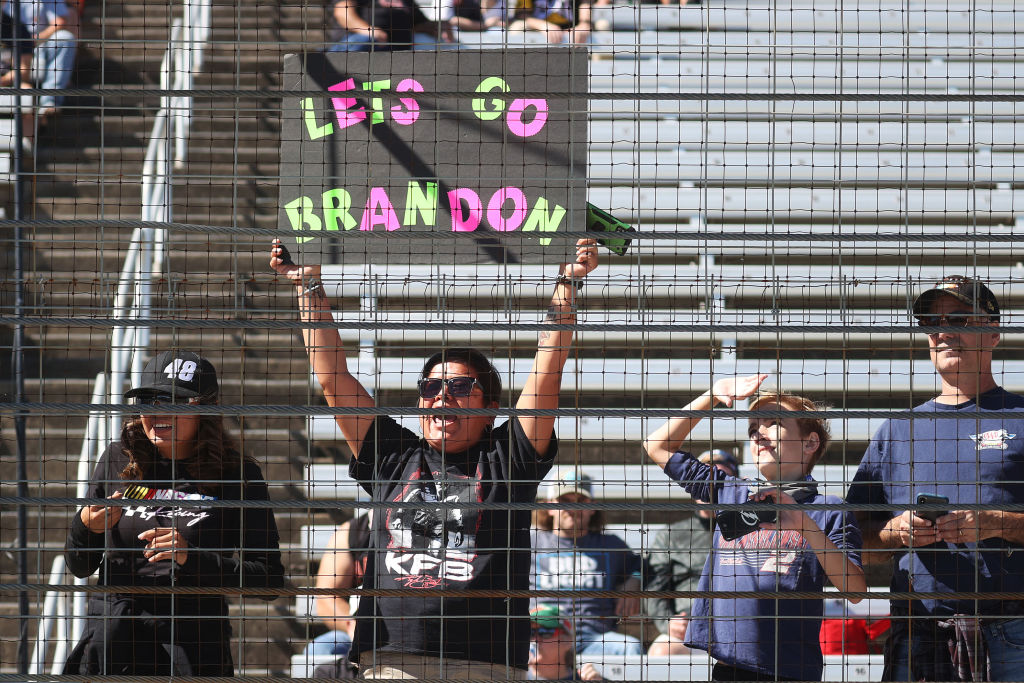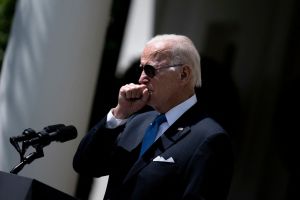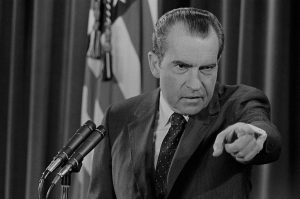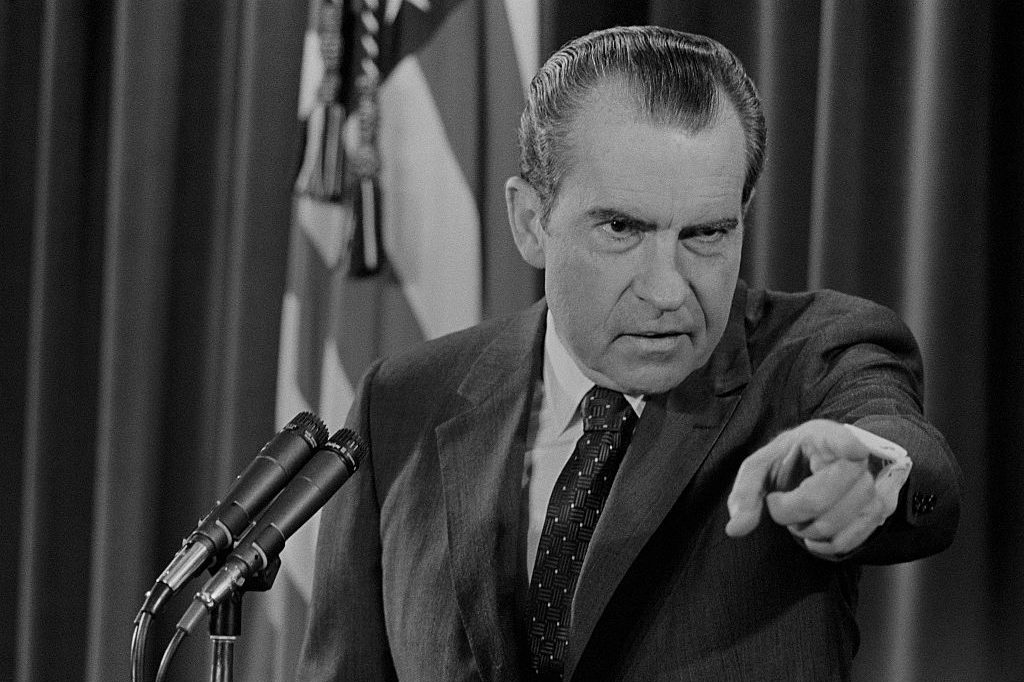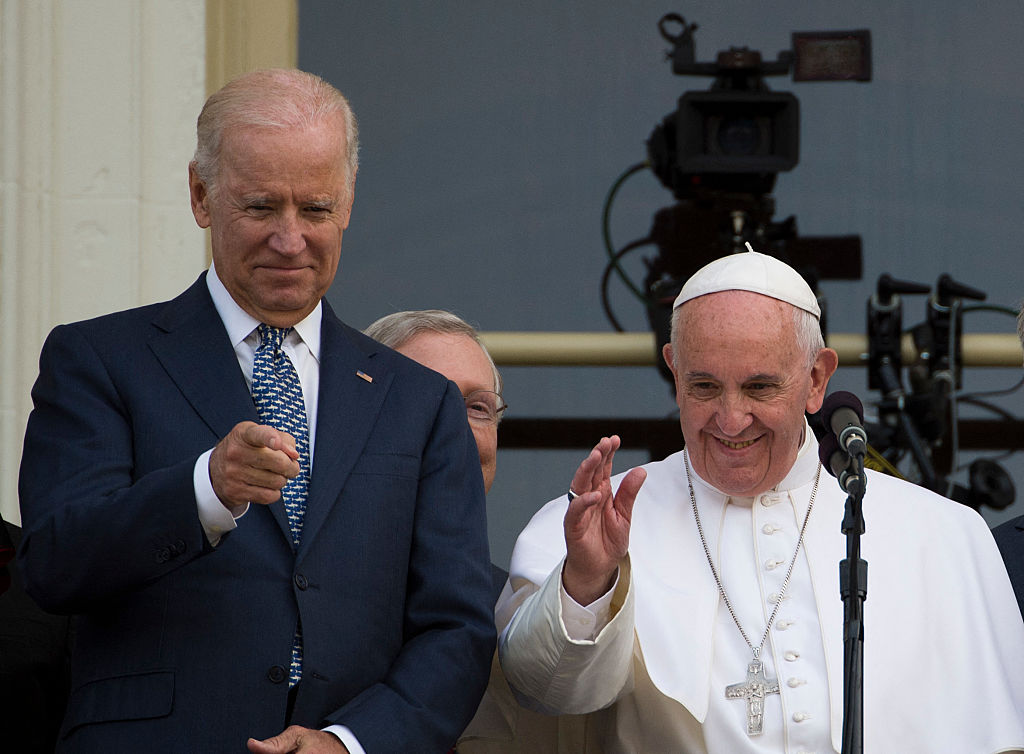“Let’s go Brandon” started in the most apropos way imaginable: NASCAR driver Brandon Brown was euphorically thanking Larry’s Lemonade and other sponsors for his win at the Talladega Superspeedway when the crowd erupted into a sing-songy “F*ck Joe Biden!” chant (because, why not?). The reporter — either purposefully or by mistake, we don’t know — did what the media does best and warped reality. “You can hear the chants from the crowd — ‘Let’s go Brandon,’” the reporter said.
And so launched the meme that sank a thousand bipartisanships. “Let’s go Brandon” is now commonplace code for conservatives everywhere. It’s emblazoned on T-shirts, hats, banners, and billboards, and is plastered all over the internet. A Southwest Airlines pilot is making headlines for reportedly saying the phrase when he was signing off the PA system on a plane.
NPR, after diligently consulting with an independent researcher to discover “how this meme got so big,” posited that “Let’s go Brandon” is popular because it’s “shareable and adaptable.” Oh — and there’s the fact that “while it’s possible that social media platforms and search engines might ban the more explicit phrase…the meme version isn’t a phrase that can be banned.” Bingo! Except that “Let’s Go Brandon,” a song by rapper Bryson Gray, has replaced 15-time Grammy award winner Adele’s new single as the number one song on iTunes. And YouTube banned the hit for allegedly spreading “medical misinformation.”
So what’s the sticky genius behind this seemingly innocuous phrase? It’s the ability to say a whole lot without saying much at all.
The tongue-in-cheek phrase encapsulates several things: mockery of the dishonest propaganda machine that calls itself the media. Defiance of cancel culture and the bullying mentality of the woke word police. And a bit of old-fashioned American fun in the face of our uber-serious snowflake society.
Freedom-loving folks suffering under repressive regimes have always had to resort to languages of code to build support while avoiding tickets to the gulag — even if modern-day gulags are now largely of the digital variety. In the age of shadow bans, social media censorship, the politics of personal destruction, and monopolistic news corporations colluding with the political establishment, “Let’s go Brandon!” has become an underground speakeasy-esque secret handshake of sorts signaling resistance to a broken system and its crooked overlords.
In this, it’s much akin to the famous phrase, “Who is John Galt?” which, we remember from Political Science 101, is the opening line of Ayn Rand’s 1957 opus Atlas Shrugged. The phrase is still useful — and in use — today. When Atlas Shrugged the movie was released in 2011, the Hollywood Reporter noted that “Ayn Rand’s novel extols free markets and entrepreneurialism and excoriates government coercion and over-taxation, values that unite Tea Partiers. In fact, rallies invariably feature signs that mimic the book’s opening line: ‘Who Is John Galt?’ Another common sign at Tea Party rallies asks, ‘Is Atlas Shrugging?’”
Conservatives may now be forced to invent a whole new parlance to avoid being censored by the social media autocrats playing whack-a-mole with words. Sharing ideas that are contrary to the PC Thought Police has become more difficult in a country that censors its own president from Twitter. And where Harvard Law School professors are granted deference when they say “significant monitoring and speech control are inevitable components of a mature and flourishing internet, and governments must play a large role in such practices to ensure that the internet is compatible with society norms and values.”
And where nothing you say or do escapes the all-seeing eyes of the technocracy. You can’t, for instance, share a post on Instagram about COVID-19 without a message interfering to ask if you want vaccine information from the CDC, UNICEF or the WHO. And we all know what happens to e-mails you sent privately a decade ago (unless, of course, you’re Hillary Clinton).
So don’t be surprised if the word “Brandon” is soon banned by our techno-political overlords and added to the blacklist of “deplorables,” “insurrectionists” and “domestic terrorists.” Still, phrases like it will keep appearing and doing for freedom lovers what “Who is John Galt?” did for libertarians seeking to cryptically identify themselves to one another without publicly betraying their verboten viewpoints.
The entrepreneurial American spirit of liberty will continue to find ways to resist loudly and deafen the silencers. This is pure, grassroots, populist political will bubbling up, and heavy-handed censorship will only invigorate it, as it did in Ayn Rand’s classic novel. So never forget the power of humor; a silly joke can share a lot of very serious truth. And many a tavern room quip has snowballed into a sustainable political movement.
Thank you, Brandon Brown, and the incompetent sports reporter who ran interference for Biden, for providing red-blooded Americans with a rally cry!



